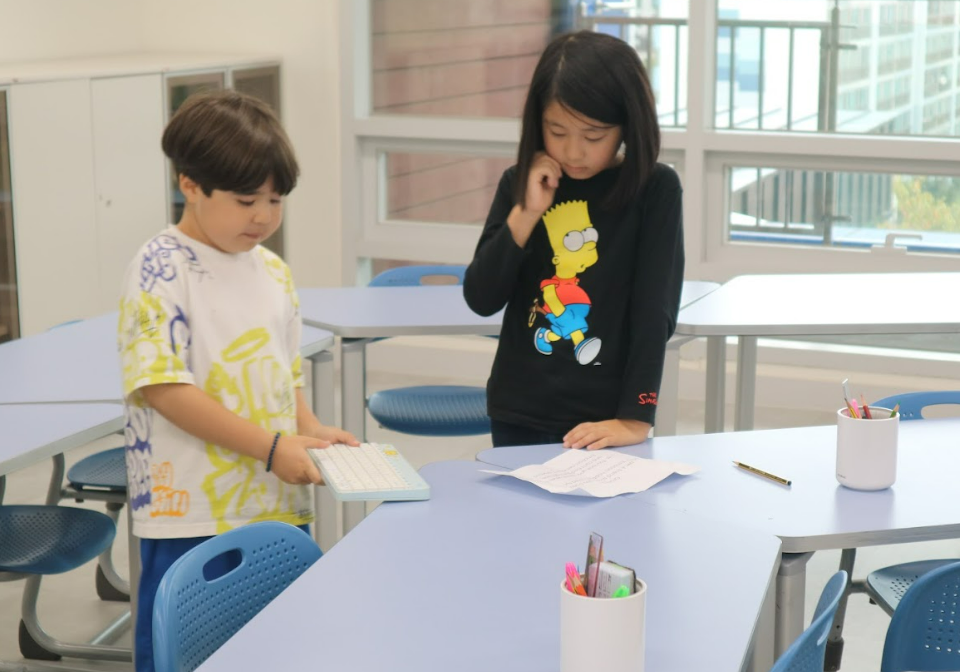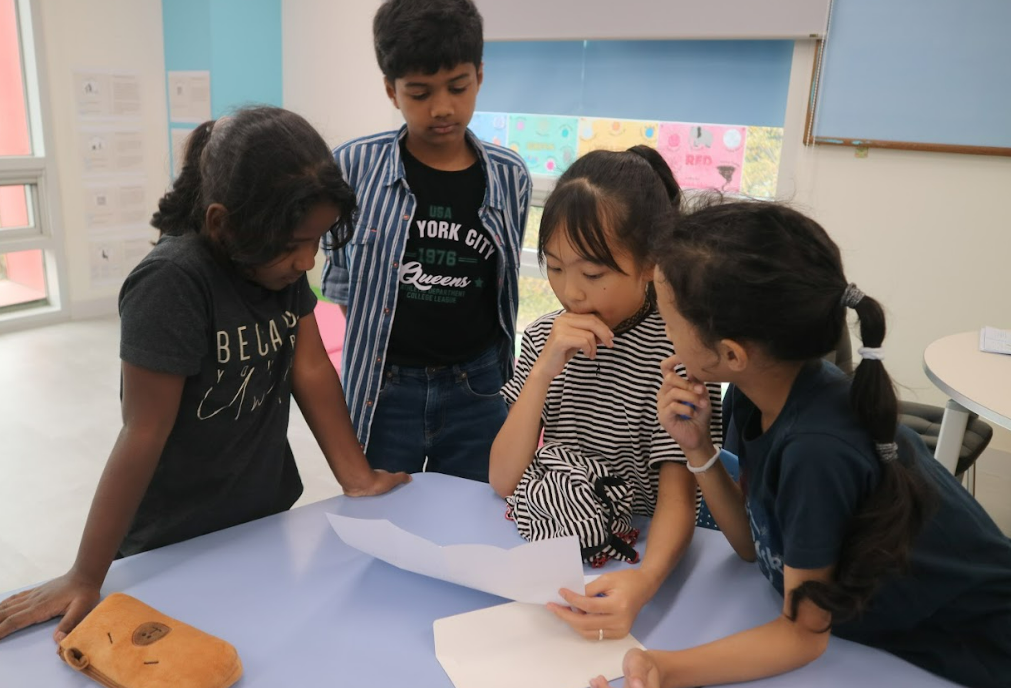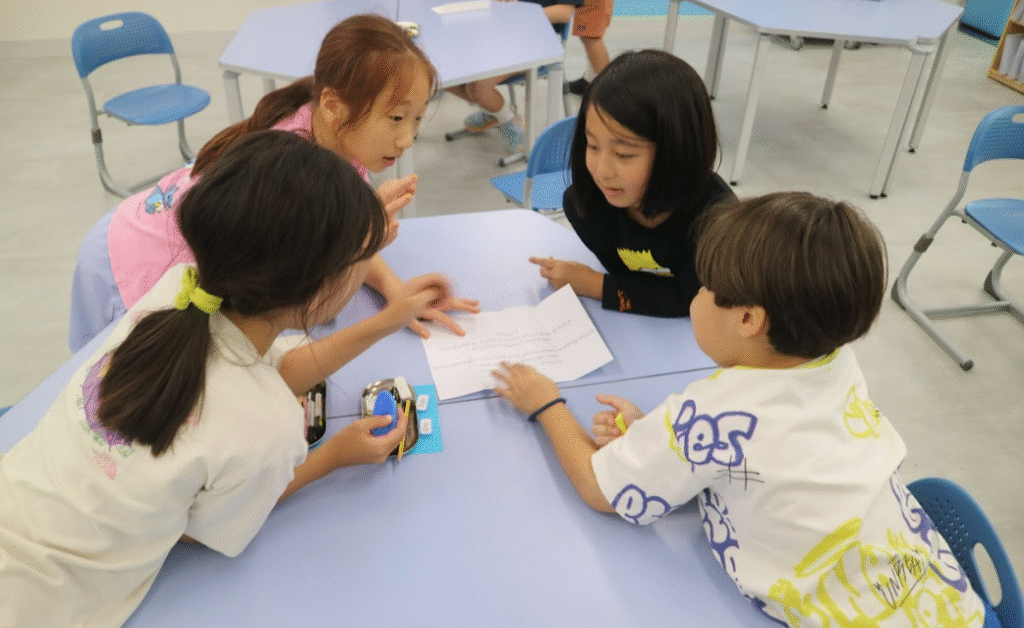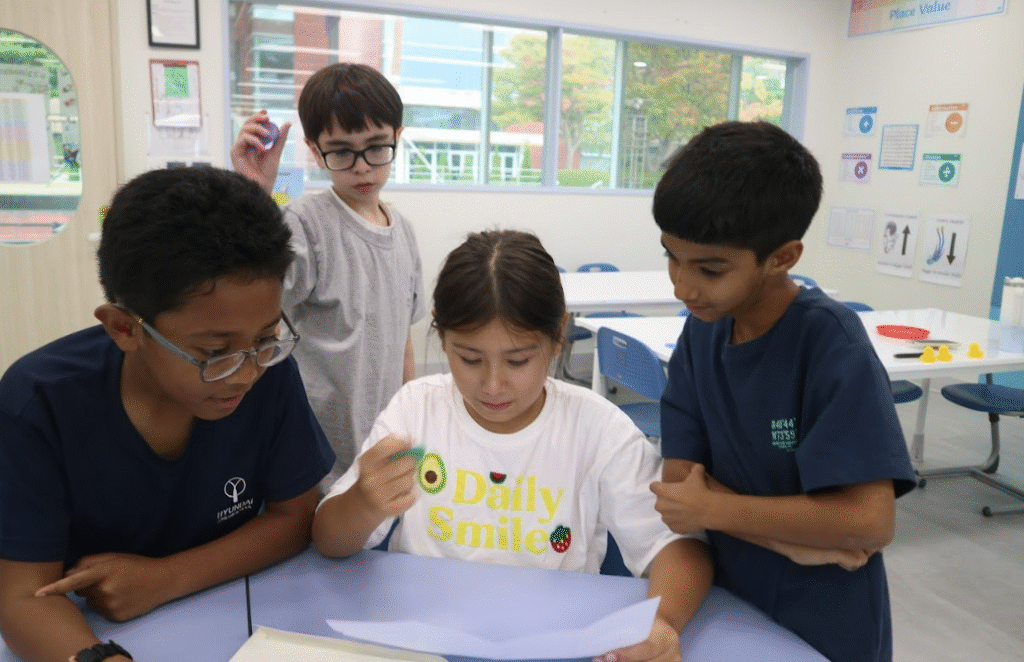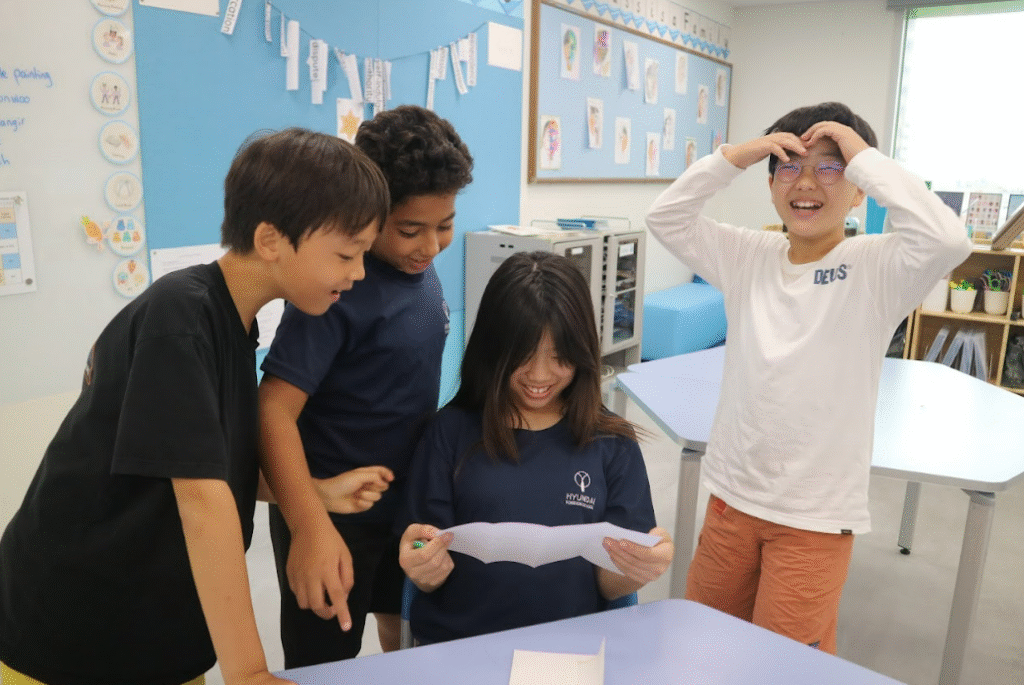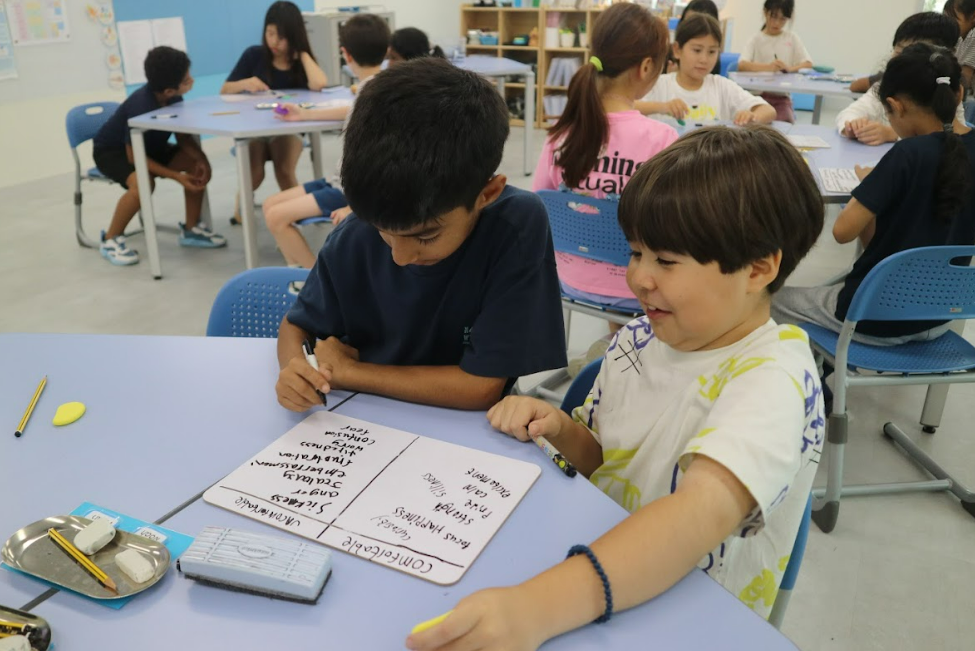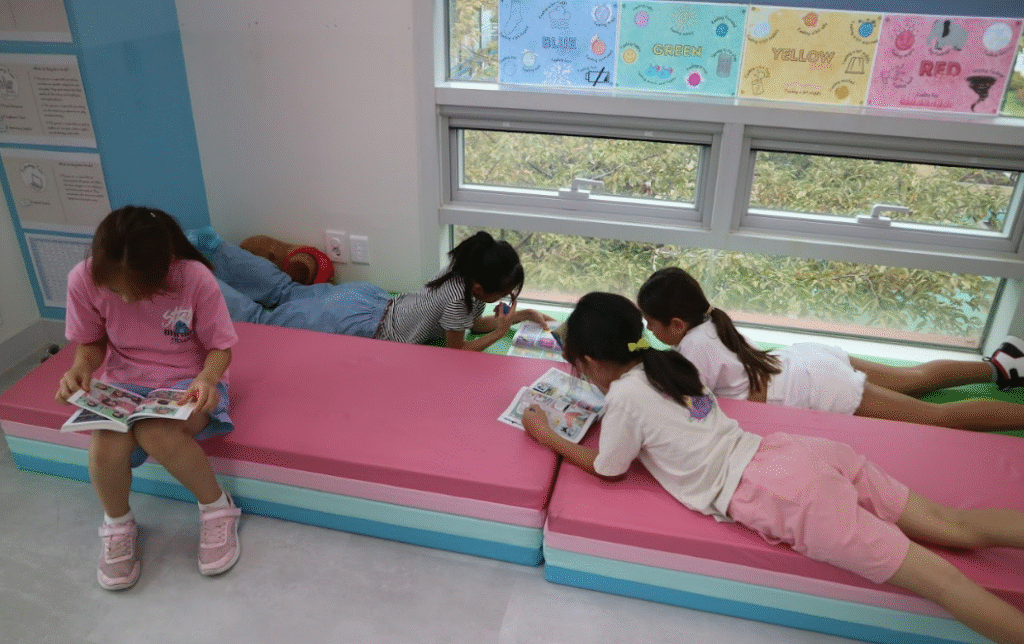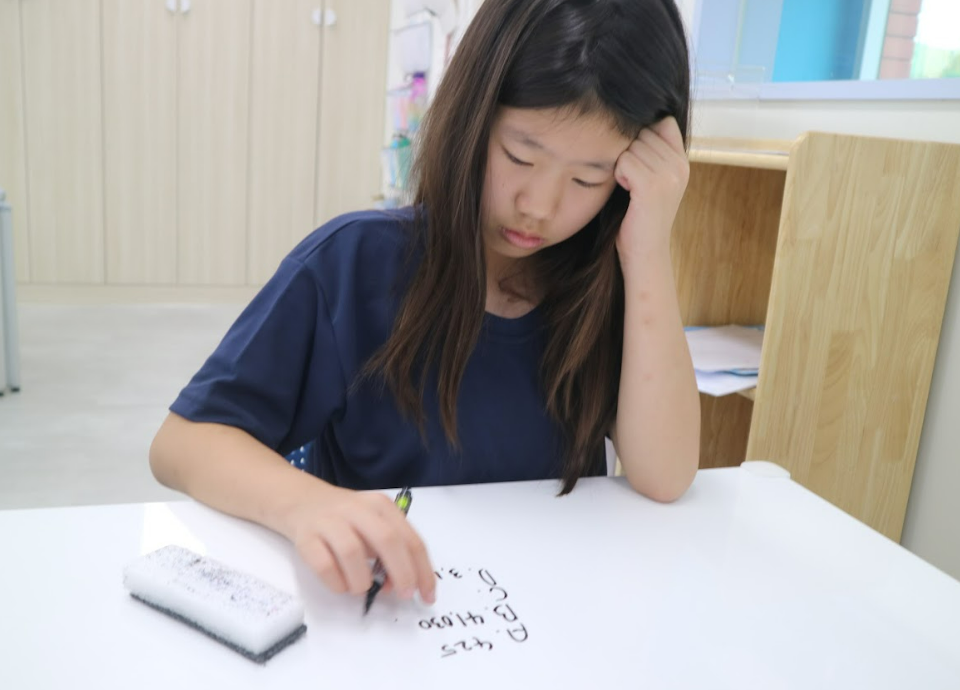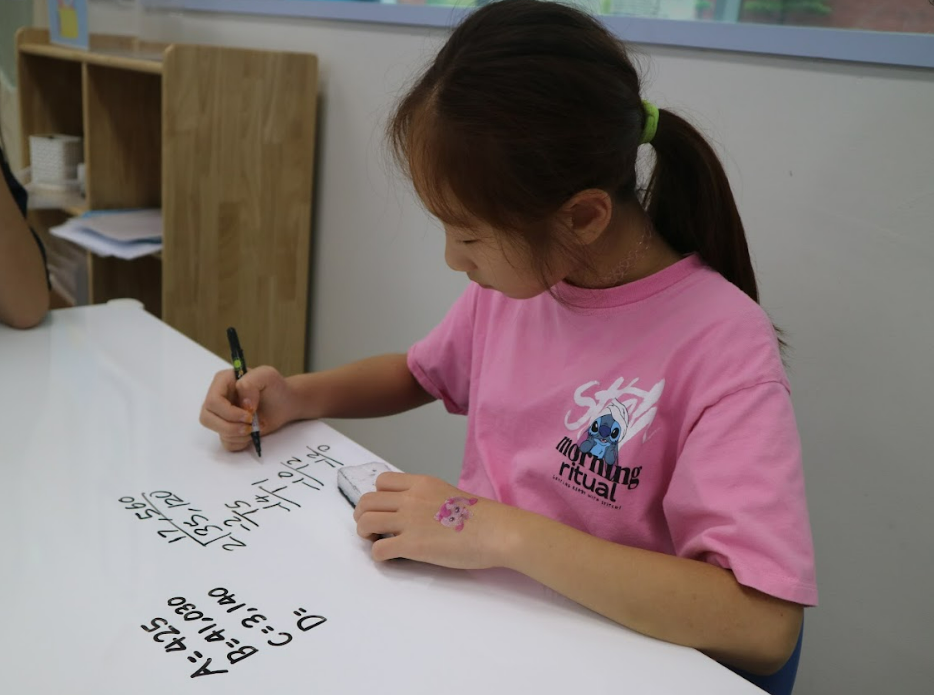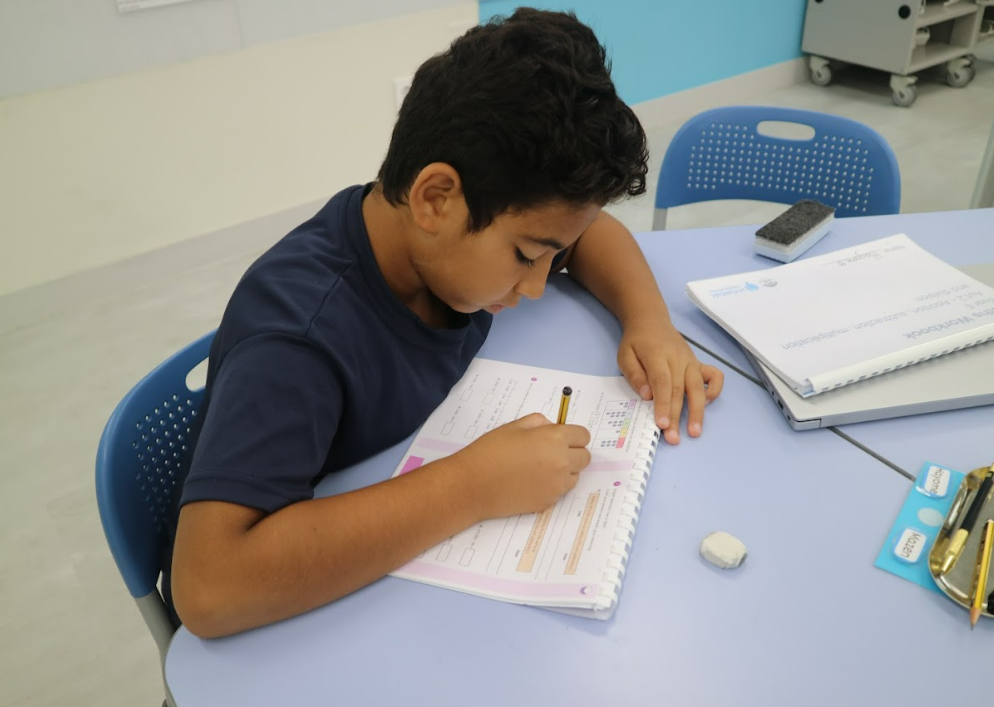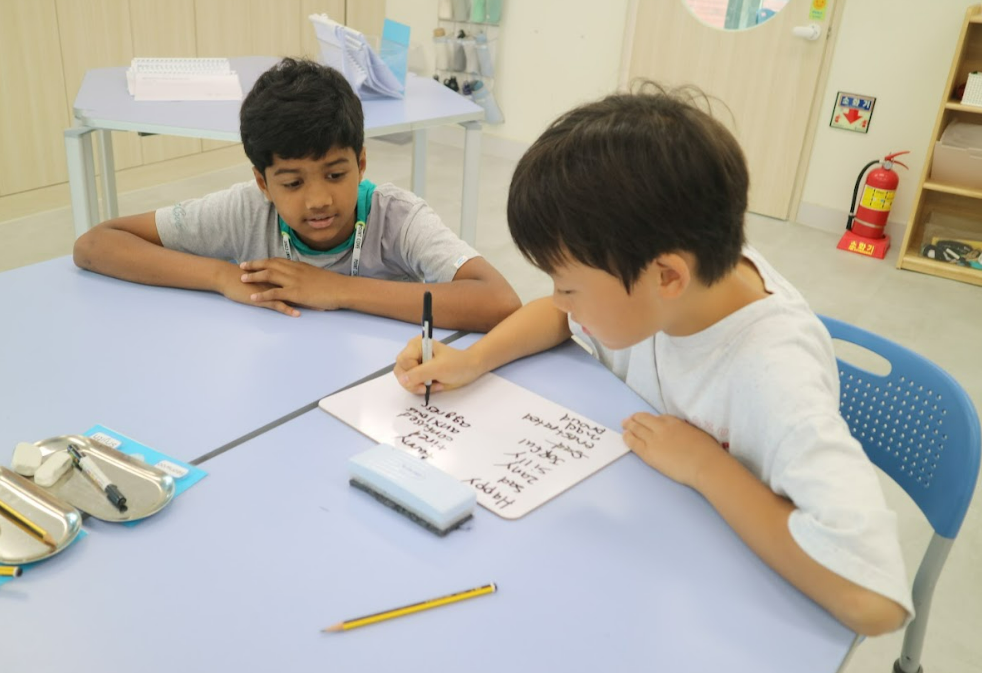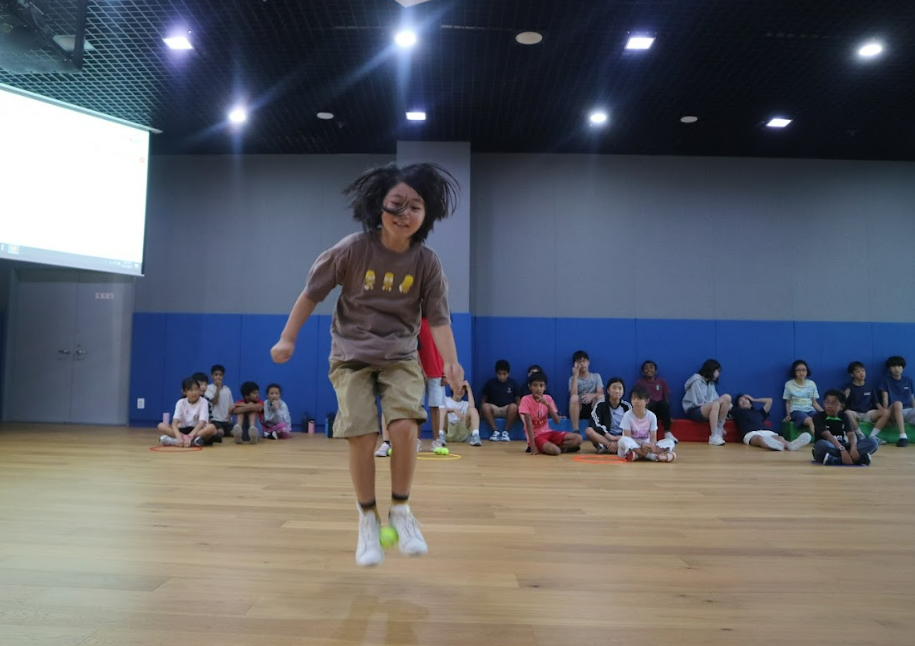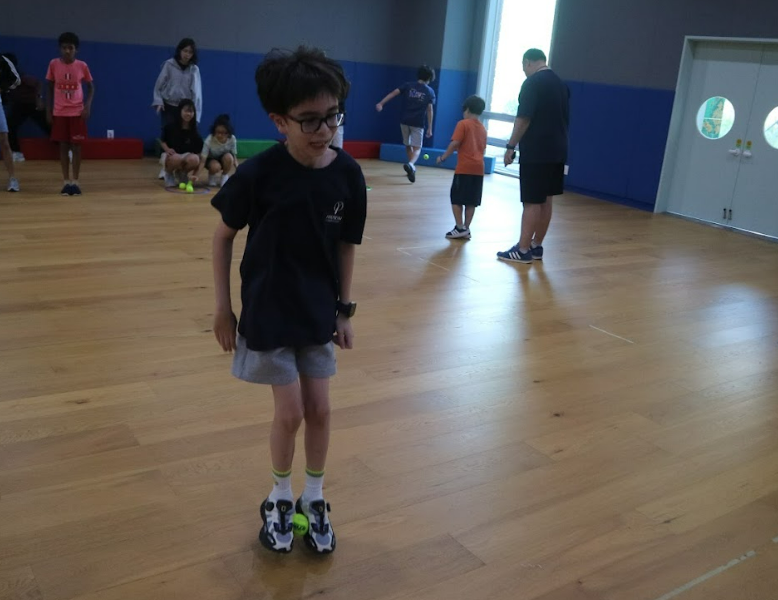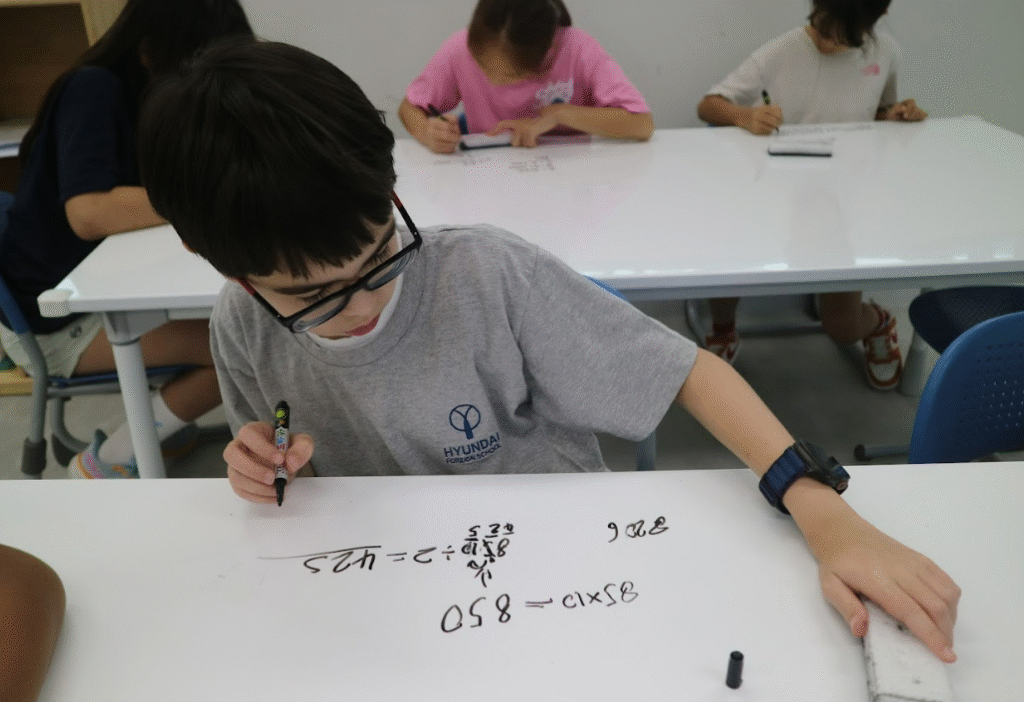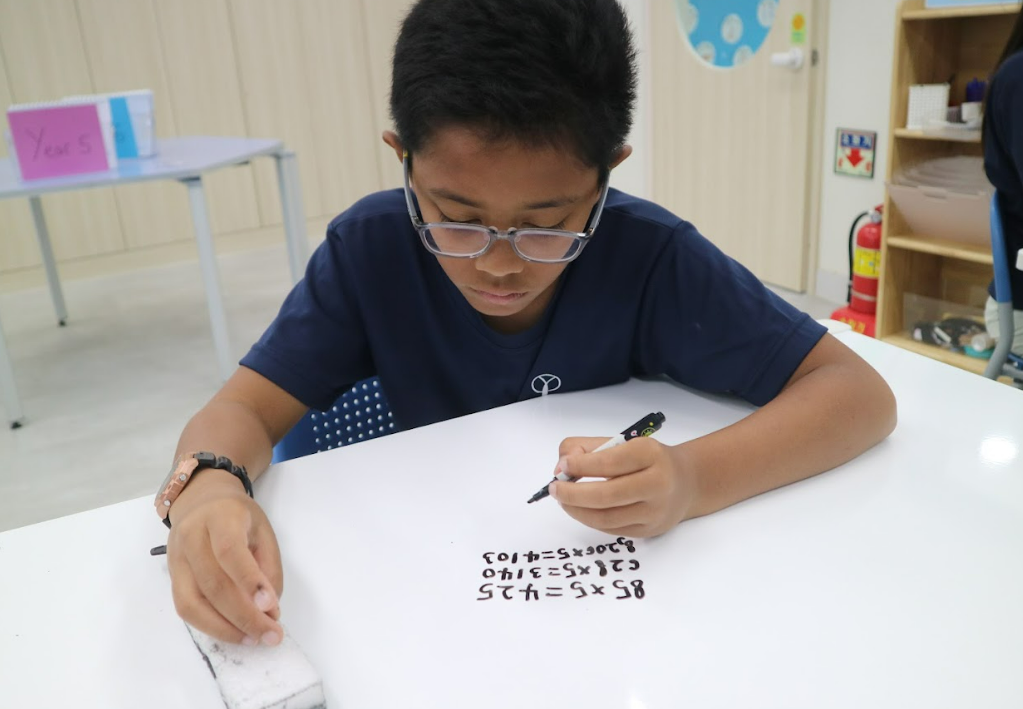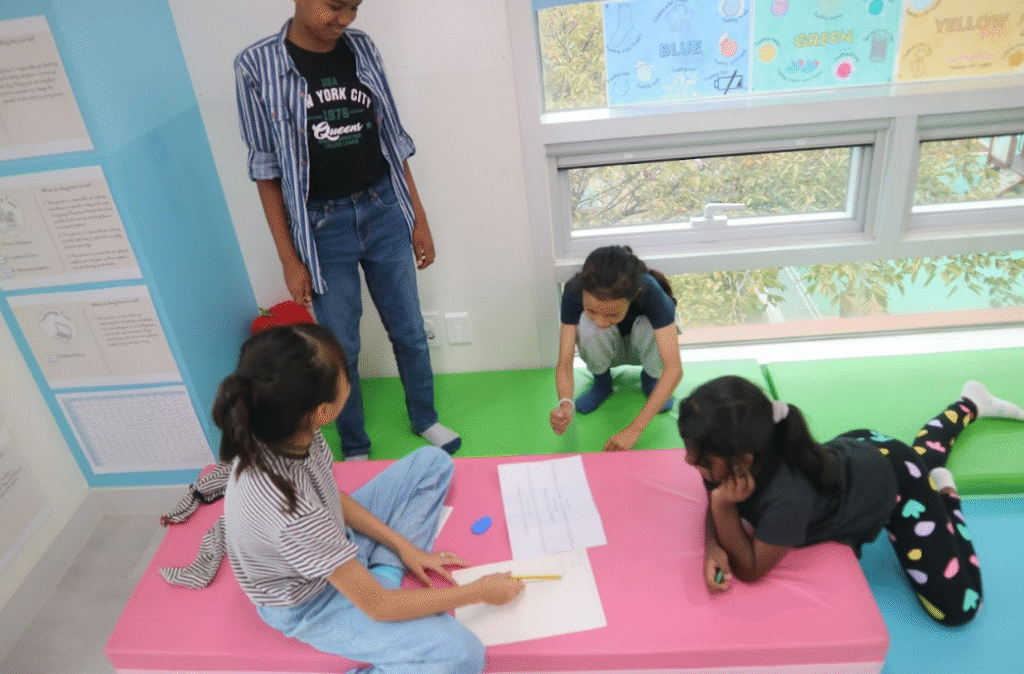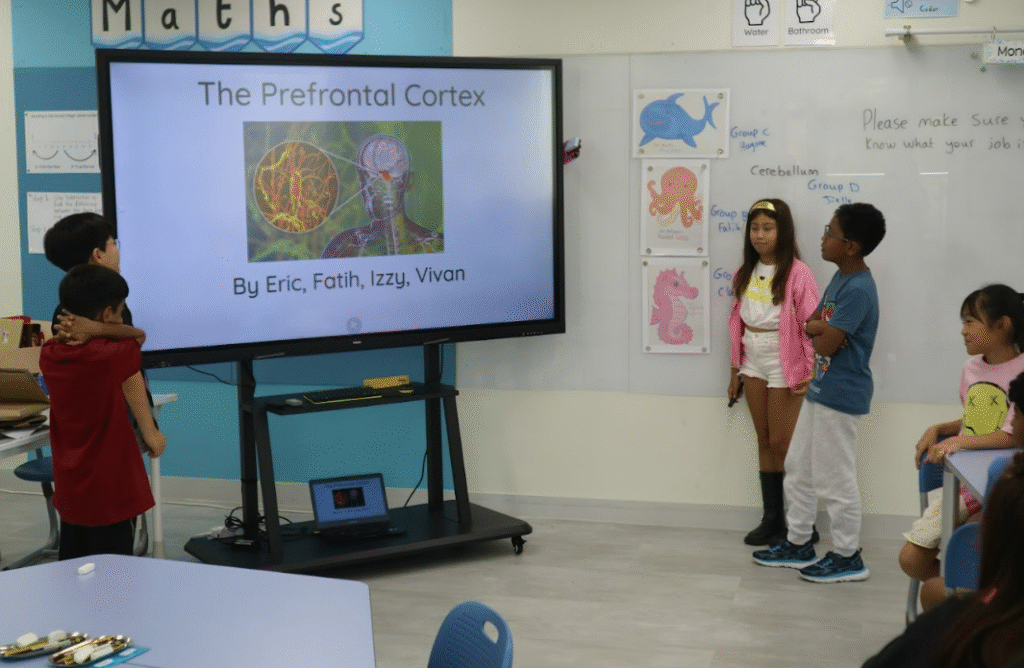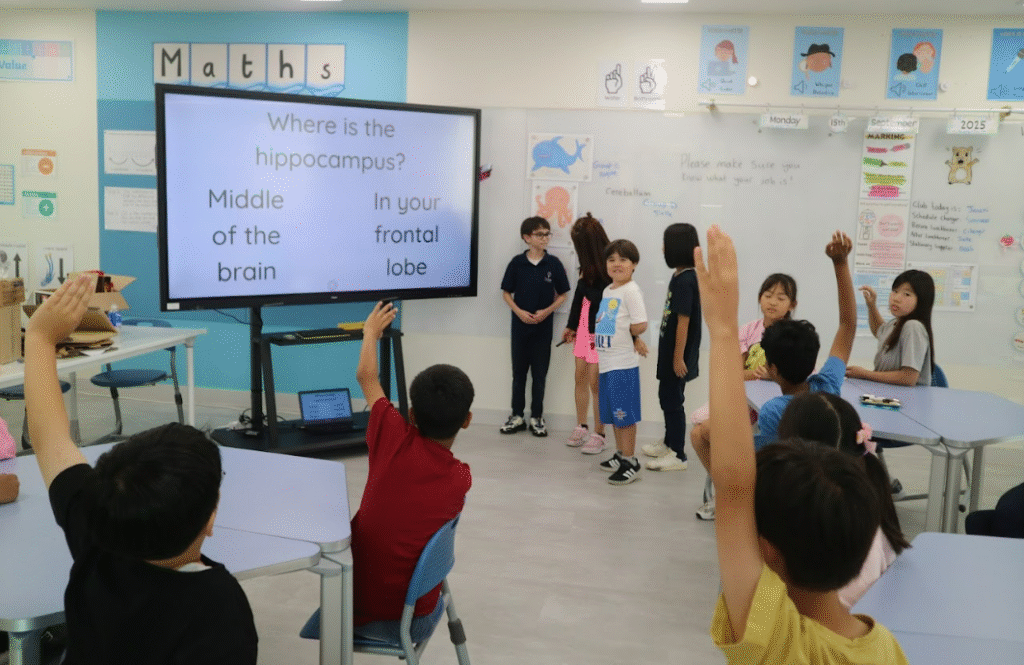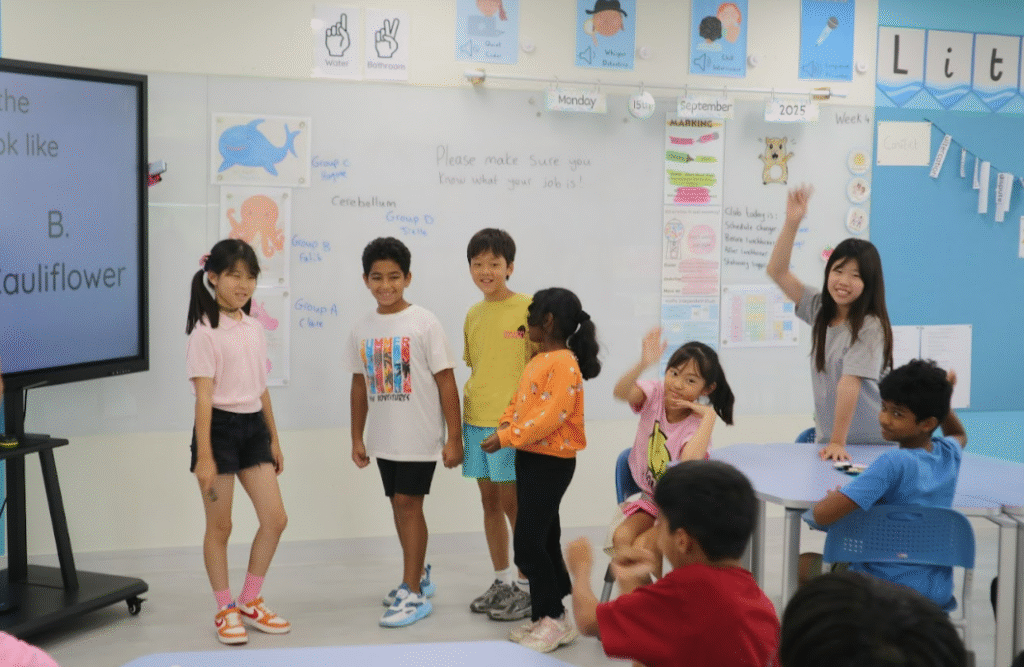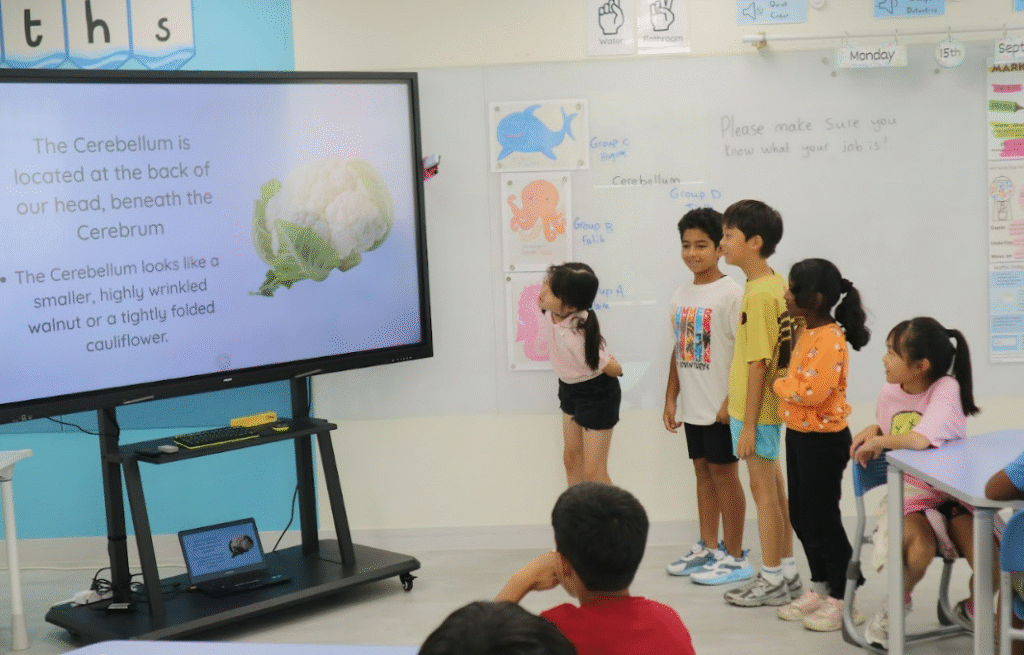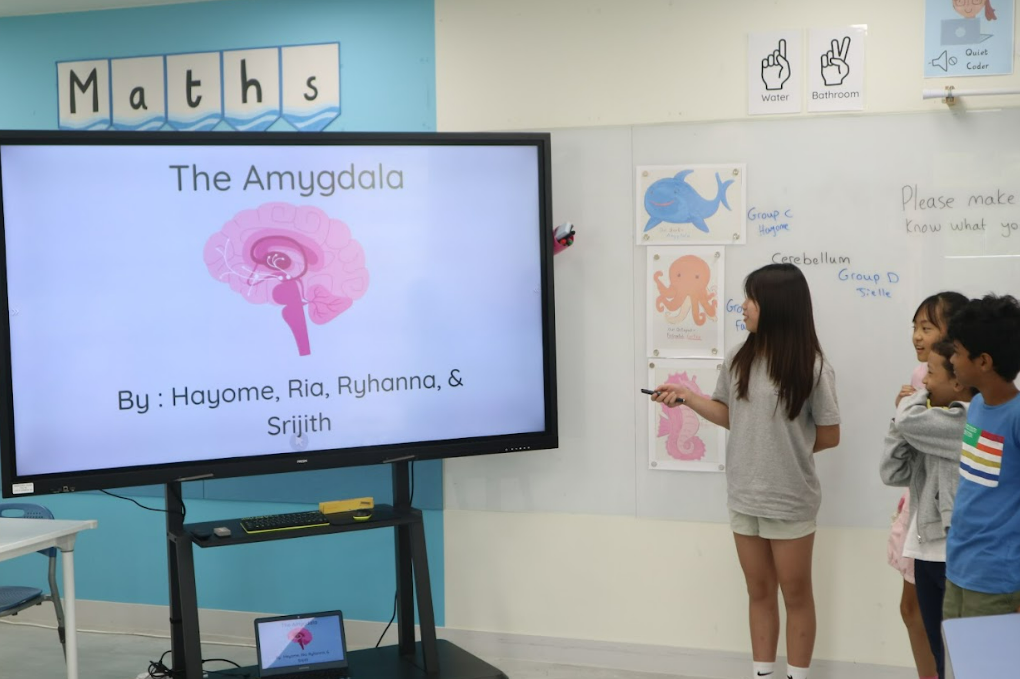Hello everyone,
I hope you are all enjoying the cooler weather! It has been such a welcome change. The children are definitely noticing it too, as they come in from breaktime looking much fresher and less sweaty than before.
Here is what Year 5/6 have been up to in week 4:
Maths
Year 5
| Aut.1 – Place value | Aut.1.14 – Round within 1,000,000 |
|---|---|
| Aut.1 – Place value | Assessment A |
| Aut.1 – Place value | Assessment B |
| Aut.2 – Addition and subtraction | Aut.2.1 – Mental strategies |
| Aut.2 – Addition and subtraction | Aut.2.2 – Add whole numbers with more than four digits |
Year 5 completed their first assessment of the year on Wednesday. Moving up from Year 4 to Year 5 is always a big leap, so it was no surprise that many of the children found it tough at first. On Thursday, we took some time to talk about smart test strategies, like slowing down, checking answers, and making sure every question is read carefully. The hard work paid off! After the Version B re-test, everyone did much better. Well done, Year 5!
Year 6
| Aut.1 – Place value | Aut.2.5 – Primes to 100 |
| Aut.2 – Addition, subtraction, multiplication and division | Aut.2.6 – Square and cube numbers |
| Aut.2 – Addition, subtraction, multiplication and division | Aut.2.7 – Multiply up to a 4-digit number by a 2-digit number |
| Aut.2 – Addition, subtraction, multiplication and division | Aut.2.8 – Solve problems with multiplication |
| Aut.2 – Addition, subtraction, multiplication and division | Aut.2.9 – Short division |
Literacy

This week we continued with our focus text Star of Fear, Star of Hope. The children began by writing a diary entry from Helen’s perspective. This task gave them the chance to practise writing in the first person, while also encouraging them to think carefully about Helen’s emotions and experiences during this difficult time in history. Later in the week, the children made predictions about what might happen next in the story. They were challenged to use expanded noun phrases so that their ideas were not only imaginative but also descriptive and detailed.
The class are really enjoying this book. In fact, they groan in disappointment whenever we have to stop reading, which is wonderful to see. Their excitement is fuelling some excellent discussion and thoughtful writing. I am also impressed by how the children have shown great maturity during our discussions. They ask thoughtful questions with respect and sensitivity, showing that they understand the importance of handling such topics with care.
All of these shorter tasks are helping the children to build the skills they will need for their longer independent writing outcomes later in the unit. By practising empathy, descriptive language, and prediction, they are steadily developing the tools to produce extended, well-crafted pieces of writing with both detail and emotion.
IPC

In IPC this week, we brought our Brainwave unit to a close with an engaging exit point. The students were divided into groups, each responsible for researching and presenting information about a different part of the brain. They showed excellent teamwork and delivered their presentations with confidence, demonstrating how much they have learned about how our brains work and how this helps us to learn more effectively.
We then began our brand-new unit, Express Yourself, which is all about exploring feelings and emotions. Before the unit started, the children were challenged to complete five acts of kindness. In our first lesson, they wrote about what they had done and reflected on how those acts made them feel inside. It was a lovely way to begin the unit and encouraged everyone to think about how our choices can influence our emotions as well as the feelings of others.
As we moved forward, we discussed the different types of feelings people can experience. The students compared physical feelings (such as feeling hot, cold, hungry, or tired) with emotional feelings (such as feeling happy, sad, worried, or excited). This helped them to see how emotions are connected to our bodies and can affect the way we act and respond.
One of our most important conversations was about how emotions should not be labelled as “good” or “bad.” Instead, we looked at how they can be described as comfortable or uncomfortable. This language helps children to recognise that all feelings are natural and temporary, and it reduces the guilt or shame that can sometimes come from experiencing emotions like anger or sadness. The class showed real maturity in talking about this, and it was wonderful to see them reflect so openly.
To finish the week, the students worked in groups to plan and rehearse short role-play scenarios. Each group was given both a comfortable and an uncomfortable feeling to act out. Next week, they will perform their role plays for the rest of the class, who will then try to guess which emotions are being portrayed. This will give the children a chance to practise recognising emotions in others, an important step in developing empathy and emotional awareness.
Important Information
- In last week’s homework, I included a guide to help the children check their own Maths work. Many of them did this brilliantly, though a few forgot. If you could gently remind your child to mark their work straight after completing it, that would be wonderful. It really helps them to celebrate what they’ve done well and notice where they might need a little more practice.
- I’d also like to remind you about the Google Form I sent a few weeks ago regarding my teaching Instagram page. The form asks for your permission to share photos or short videos of your child taking part in classroom activities. This is, of course, completely optional, and I will only ever post content where the children look positive, engaged, and proud of their work. I’ll include the link again in this update in case you haven’t had the chance to complete it yet. Thank you so much for your continued support. Here is the form 🙂
Have a refreshing weekend everyone! 😀
